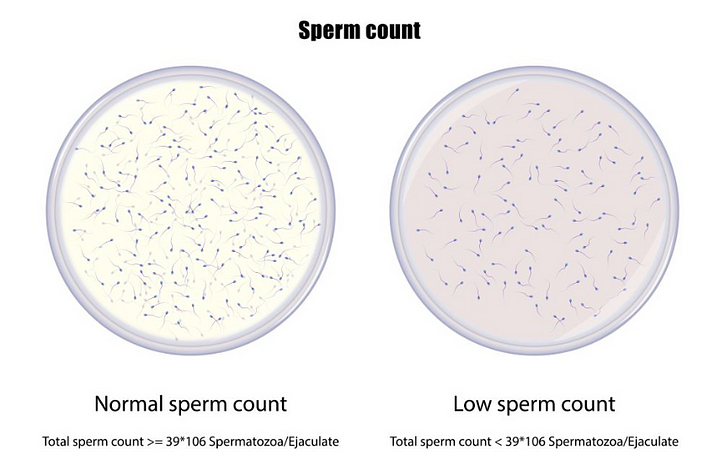Understanding Low Sperm Count: Causes, Symptoms, and Treatment Options

For a successful pregnancy, only one sperm is required to penetrate and fertilize the egg. Surprisingly, more than 39 million sperm are released per ejaculation, highlighting the incredible odds of fertilization.
What is Low Sperm Count?
Low sperm count, or oligospermia, occurs when the number of sperm is below 29 million per ejaculation. Clinical testing is essential to accurately diagnose this condition, as visual assessment of semen is insufficient.
In cases of oligospermia, sperm counts can fall below the critical threshold of 15 million per millimeter of semen. Severe oligospermia represents counts below 5 million per millimeter, further complicating fertility prospects.
Determining the precise cause of low sperm count can be challenging. Often, men may remain unaware of their condition until they seek medical advice due to difficulties in fathering a child. Factors such as genetic disorders, hormonal imbalances, exposure to toxins, heat, certain medications, and infections may contribute to this condition.
Symptoms of Low Sperm Count
Primary symptoms of low sperm count include the inability to conceive. Additional signs may include inflammation, pain, or lumps around the testicles, low body and facial hair growth (indicating hormonal imbalance), and challenges in maintaining an erection.
Impact of Low Sperm Count
While low sperm count can hinder natural conception, it’s not an insurmountable barrier. Azoospermia, where no sperm are present in the semen, represents the only instance where natural pregnancy is impossible. Oligospermia, although reducing pregnancy chances, does not universally preclude fatherhood.
Treatment Options for Low Sperm Count
Treatment approaches vary depending on the underlying cause. Surgical interventions may address physical obstructions, while hormonal supplements can rectify imbalances. Antibiotics are effective if the condition stems from an infection, and counseling proves invaluable in cases without discernible causes.
Can You Cure Low Sperm Count?
While certain factors, like medication or environmental changes, can improve sperm count, genetic or disease-related causes may prove more challenging to remedy. Consulting a fertility specialist is crucial for an accurate diagnosis and tailored treatment plan.
Pregnancy Despite Low Sperm Count
Despite concerns, many men with low sperm count go on to father children. Advancements in fertility treatments, including artificial insemination, offer viable options. This procedure directly introduces sperm to the egg, bypassing the need for millions of sperm to navigate the fallopian tubes.
Conclusion
Though not extensively documented, low sperm count is a manageable condition that doesn’t significantly impact daily life. Career, exercise, and regular activities remain unaffected. Seek guidance from a fertility specialist for a comprehensive understanding of your unique situation and potential paths towards fatherhood. If you’re in Madurai, consider reaching out to an IVF centre in Madurai, where experienced professionals can offer specialized advice and personalized treatment options tailored to your specific needs. They can provide you with the necessary support and expertise to navigate the journey towards parenthood.
Comments
Post a Comment